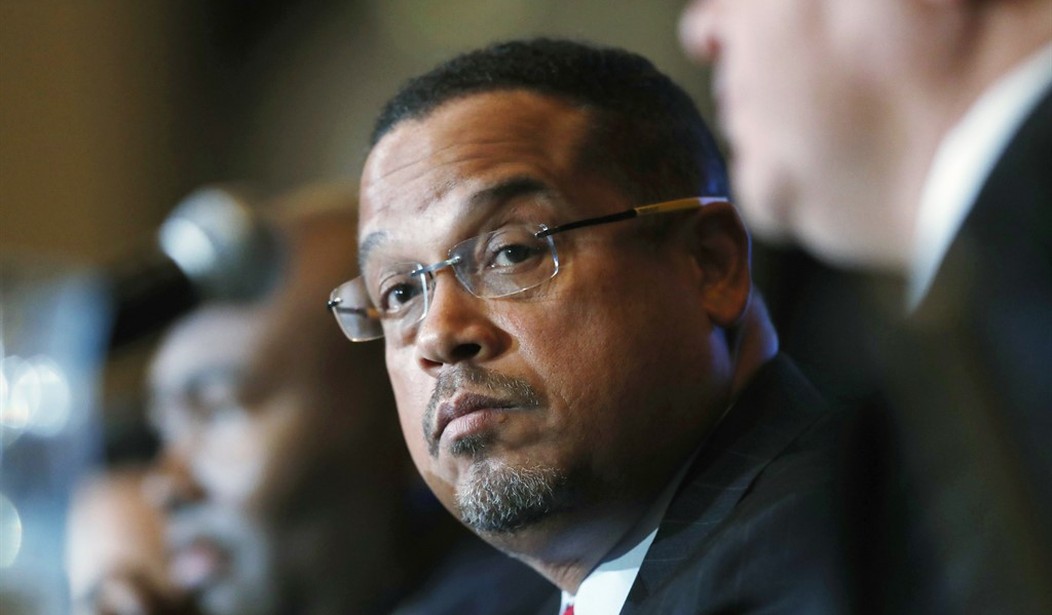Didn’t Barack Obama brag about this three months ago, calling himself “the father of the Tea Party“? Not exactly, as DNC deputy chair Keith Ellison explains in this exchange on a panel at the University of Minnesota. Ellison argues that Obama failed to rebuild the party’s ground apparatus after his two presidential elections, and that this failure has put his “wonderful achievements” at risk. The truth, however, lies somewhere in between:
“Look I’m a great fan of President Obama. I totally voted for many of the things he supported — Dodd Frank, Affordable Care Act, Lilly Ledbetter Fair Pay Act — I could keep going,” Ellison said at an event Wednesday at the University of Minnesota.
“Wonderful achievements. But Barack Obama could have been a better party leader, and I think the fact that he wasn’t put his legacy in jeopardy,” he said.
Ellison added that Obama was “great at getting himself elected” but said he should have worked closer with party leaders to ensure the Democrats were in power to protect his accomplishments.
“Your legacy is not a building that he’s going to construct in Chicago housing his presidential papers,” Ellison continued. “His legacy is the work he’s done, which I believe is tremendous. But given we lost a lot of statehouse seats, governorships, secretary of states, his true legacy is in danger, and I think he can’t say that he wasn’t part of those losses. Who else, right?”
First, there is some truth to Ellison’s allegations about Obama’s lack of party-building, which is ironic considering his status as the country’s most famous “community organizer.” Obama built unprecedented campaign organizations, both in size and innovation, for his 2008 and 2012 elections, about which I wrote in Going Red. However, at the end of both cycles, Obama held onto the organization and the people within them for his Organizing for America/Action activist efforts to support his agenda. Significant resources had been taken from Democratic Party infrastructure to build Obama’s campaigns and groups, and that sapped their ability to work on the ground. In that sense, Ellison’s correct.
However, Ellison also argues that Obama’s “tremendous” work has nothing to do with the losses the party has suffered on all levels, and that’s simply not true. It was that agenda, those “accomplishments” for which Ellison voted and the sharp left turn they represented, that created a vacuum that the Tea Party and right-leaning populism filled. The problem in 2010 wasn’t a lack of Democratic resources, but the radical nature of their legislative agenda the previous two years and the contrast it made from Obama’s promise to be a “post-partisan,” middle-of-the-road president.
The acid test of this came last year, which Ellison somehow manages to avoid in this calculation. Hillary Clinton raised a lot more money, and ran against a candidate who was more disliked than liked during the entire political cycle. And yet, not only did she lose, Democrats failed to win back control of the Senate despite overwhelming odds in their favor, and barely dented the Republican majority in the House. The GOP under Reince Priebus did a much better job of organizing than in 2008 and 2012 to be sure (also covered in Going Red), but Democrats had plenty of resources with which to compete. And yet voters at all levels rejected the candidate who promised continuity with Obama’s “tremendous” work, and sided with the party committed to dismantling it.
So yes, Obama’s to blame for the Democratic Party’s standing — but so are all the Democrats who think that Obama’s work is widely embraced outside their coastal and academic bubbles, and who are doubling down on it after losing the last election.








Join the conversation as a VIP Member